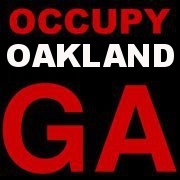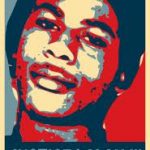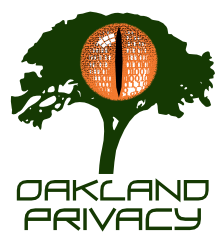Calendar
Hardware Hacking Tuesdays are better than ever! Plus Fix-It Clinic!
Each Tuesday we welcome all to bring their hardware (and software and firmware) projects to Omni Commons, or simply come by to learn and tinker! All welcome, about 7:30pm until ∞ …whomever’s left standing!
We are inside the Omni Commons at 48th and Shattuck, see the link at the end of this text to call in in case the doors are locked!
○ Projects: can range from building course materials for teaching local kids electronics to a robotic arm that draws, to light projection art, to people building their own microchip boards! We provide the space, tools and peer learning – you bring your project and enthusiasm!
○ Group Sewing: Learn to do simple mending or get help with technical fabric and textile projects. In addition to regular machines our Sewing Lab features heavy-duty industrial sewing machines and sergers. Our in house sewing guru CC has worked for Academy or Art College, Tesla, SuitX, and Zipline and has vast sewing machine repair and maintenance experience; bring your own machine to tune up for tip-top operation and sew alongside others.
○ General Repair: Fix it Clinic’s weekly Oakland residency: bring your broken, non-functioning things – electronic gadgets, appliances, computers, toys, sewing machines, fabric items, etc.– for assessment, disassembly, and possible repair. We’ll provide workspace, specialty tools, and guidance to help you disassemble and troubleshoot your item. First-time repairers and “Fixing Families” are heartily invited. Learn more at https://www.fixitclinic.org/
Join us every Tuesday evening for a trifecta of awesomeness; you can also jump in virtually via our zoom-like video conference at this link: https://meet.waag.org/turtlesturtlesturtles
Beginning in June– hoping to solidify a regular monthly meeting time. We will try out the 2nd Monday of the month, so June 10 from 6-8p. Also, starting next month will be bi-weekly newsletters with updates, resources and announcements.� 🤞
Update–
The Federal loan consolidation deadline has been extended until June 30th. The Student Debt Crisis Center (SDCC) is holding a workshop to discuss the options available to borrowers right now as well as what folks can expect to see later this year. Some folks will have payments cut in half through the SAVE plan, others will have their debt canceled through the IDR & PSLF Adjustments. Student Debt Workshop on Tuesday, May 21st at 7pm ET (4PM PT)
[disclaimer– this is not a Debt Collective affiliated event, but I thought it may hold some useful info for those still uncertain about the consolidation process}
Join Zoom Meeting–>
https://us02web.zoom.us/j/89423587022?pwd=QW5CNjBvRG8zbk9QQnBkeTdEdC8yUT09
Meeting ID: 894 2358 7022
Passcode: 123456
Dial by your location
� +1 669 4444 9171 US
� +1 669 900 9128 US (San Jose)
Why do we do mass copwatching shifts?
This is a chance for us to teach our shifts practice: listening to the scanner, how to copwatch as a team, incident documentation, entry into our database, and more.
We hope that people will take what they learn into their daily lives AND join copwatch for some of our weekly shifts! We are always seeking to train up more shift facilitators.
Wanna know more about our shifts? Check out the copwatch handbook packed with 30+ years of experience. (https://www.berkeleycopwatch.org/handbook)
Accessibility info: Meet in the backroom of Grassroots House. There is a ramp at the front. Masks are encouraged.
10th Anniversary Bay Area Book Festival Brings Top Authors, Critical Conversations,
and Family Fun
The Bay Area Book Festival is throwing a 10th anniversary party, where festivalgoers will be treated to the top-tier speakers the festival is known to showcase as well as new attractions, including a full day of workshops for emerging writers, three evening headliner events, a reimagined Outdoor Fair in the park (Sunday only) and the inaugural Native California stage. The icing on the birthday cake? Almost everything is free.
This year’s ticketed headliners include the incomparable Joan Baez, cultural commentator Naomi Klein and a trio of book-to-screen superstars (Viet Thanh Nguyen, Piper Kerman and Alka Joshi). Free programming features nearly 100 speakers, including Jonathan Lethem, Amy Tan, Steve Phillips, Forrest Gander, and Berkeley poet laureate Aya de León, as well as rising stars like Tommy Orange, R.O. Kwon, gina Breedlove and poet Brontez Purnell. Dozens of panels will encompass pressing issues such as Democracy, Equity, Immigration, Climate, Artificial Intelligence, and more. There will also be talks that elevate BIPOC voices, climate fiction and poetry as tools for climate justice, LGBTQIA voices, and more.
The festival’s first-ever Writers’ Day offers 10 free writing workshops for emerging and published writers � including youth andd teens � led by creative writing faculty from Bay Area colleges,, universities and literary groups. Topics include haiku writing, writing across genres, historical fiction, creative nonfiction and how to tap into your creative unconscious. Space is filling up fast; register in advance here.
Native literature has long been a festival mainstay, this year shining an even brighter spotlight on Indigenous voices with a new Native California stage in partnership with Federated Indians of Graton Rancheria. Native American-focused programming includes award-winning author Greg Sarris and novelist Tommy Orange in conversation, cookbook author Sara Calvosa Olson on decolonizing your diet, Indigenous horror with Rebecca Roanhorse and Dani Trujillo and the inspiring young essayists of the annual Graton Writing Project.
Anchored by four outdoor stages, the festival’s free Outdoor Fair & Literary Marketplace (Sunday only) features more than 100 exhibitors, including an eclectic array of authors, independent booksellers, local publishers, writing groups and programs, literary clubs and organizations, book artists, libraries, reading resources and more. Hosted by Oakland publishing house The Collective Book Studio, the Outdoor Fair’s interactive Family Zone will feature author talks, readings, storytelling sessions, cooking demos, and Drag Story Hour! Other booths will feature book-related arts and crafts, a book scavenger hunt, Literacy Bingo, the popular Half Price Books Free Book Giveaway — and more!
The Bay Area Book Festival is BARTable, easy to get to, free, and fun for all. Bring family and friends and make a weekend of it June 1-2 in downtown Berkeley!
Check out the full line-up at www.baybookfest.org
10th Anniversary Bay Area Book Festival Brings Top Authors, Critical Conversations,
and Family Fun
The Bay Area Book Festival is throwing a 10th anniversary party, where festivalgoers will be treated to the top-tier speakers the festival is known to showcase as well as new attractions, including a full day of workshops for emerging writers, three evening headliner events, a reimagined Outdoor Fair in the park (Sunday only) and the inaugural Native California stage. The icing on the birthday cake? Almost everything is free.
This year’s ticketed headliners include the incomparable Joan Baez, cultural commentator Naomi Klein and a trio of book-to-screen superstars (Viet Thanh Nguyen, Piper Kerman and Alka Joshi). Free programming features nearly 100 speakers, including Jonathan Lethem, Amy Tan, Steve Phillips, Forrest Gander, and Berkeley poet laureate Aya de León, as well as rising stars like Tommy Orange, R.O. Kwon, gina Breedlove and poet Brontez Purnell. Dozens of panels will encompass pressing issues such as Democracy, Equity, Immigration, Climate, Artificial Intelligence, and more. There will also be talks that elevate BIPOC voices, climate fiction and poetry as tools for climate justice, LGBTQIA voices, and more.
The festival’s first-ever Writers’ Day offers 10 free writing workshops for emerging and published writers � including youth andd teens � led by creative writing faculty from Bay Area colleges,, universities and literary groups. Topics include haiku writing, writing across genres, historical fiction, creative nonfiction and how to tap into your creative unconscious. Space is filling up fast; register in advance here.
Native literature has long been a festival mainstay, this year shining an even brighter spotlight on Indigenous voices with a new Native California stage in partnership with Federated Indians of Graton Rancheria. Native American-focused programming includes award-winning author Greg Sarris and novelist Tommy Orange in conversation, cookbook author Sara Calvosa Olson on decolonizing your diet, Indigenous horror with Rebecca Roanhorse and Dani Trujillo and the inspiring young essayists of the annual Graton Writing Project.
Anchored by four outdoor stages, the festival’s free Outdoor Fair & Literary Marketplace (Sunday only) features more than 100 exhibitors, including an eclectic array of authors, independent booksellers, local publishers, writing groups and programs, literary clubs and organizations, book artists, libraries, reading resources and more. Hosted by Oakland publishing house The Collective Book Studio, the Outdoor Fair’s interactive Family Zone will feature author talks, readings, storytelling sessions, cooking demos, and Drag Story Hour! Other booths will feature book-related arts and crafts, a book scavenger hunt, Literacy Bingo, the popular Half Price Books Free Book Giveaway — and more!
The Bay Area Book Festival is BARTable, easy to get to, free, and fun for all. Bring family and friends and make a weekend of it June 1-2 in downtown Berkeley!
Check out the full line-up at www.baybookfest.org
Speaker: Özgür Narin
Join Zoom Meeting
Machine Learning Algorithms running on Artificial Neural Networks and particularly reinforcement learning were real breakthroughs of 2010s, Generative AI and transformers are of 2020s, all of them developed and spread to various branches.
And nowadays they even talk about an “existential risk” created by AI as if capitalism itself was not the real existential risk for centuries. So we should talk about capitalist production process of AI and the class structure of it.
Hence, I will first try to analyse the path from machine to machine-learning via Marx’s analysis of machine while considering the alienation as the dual and complementary part of it. Datafication of society is a consequence of this process. The data extractivism of capital transforms the datafication into profit seeking capitalist production as well as parameterisation of the society. So the data gathered in and for the sake of the capitalist production is the input of the capitalist cycle and at the same time actively intervening and manipulating both the labour process data and consumer behaviour data. The data was and is not “as given” in a capitalist production. It would be better to discuss this constant manipulation before “bias” and “ethical issues” in data gathering. AI and constantly produced and reproduced data sets transformed this problem into a new sphere. When we consider the machine learning algorithms using large dataset gathered through all cycles of capitalist social reproduction, it would be better to consider the alienation of total social labour and this new level of “manipulation”. I will try to discuss this problem and suggest “parameterization of society” vis a vis “datafication of society” considering the distinction between the social form of data collection that is capitalist data extractivism and the objective content of data gathering which is in fact a possibility to organize the social production in a different classless society. The key factor is the subjective side, that is the intersection of the producers of the AI architecture, algorithms and the data.
The evolution from machinery to AI is actually a social process that is structured by class struggle. So I will try to trace the historical development of producing “learning machines” as a class struggle and point out both sides of the development, i.e. capitalist side of AI research, from cybernetics to AI and the Soviet side of it. And finally, modern class struggle, workers involved in the production of AI versus Tech-giants…
Last but not the least, considering the rather futuristic scenarios of AI, I will discuss the limits of AGI and creating AI with ‘the ability to transfer learning from one domain to other domains’ namely “AI with the capacity to engage and behave intelligently in a wide variety of contexts”.
Our speaaker, Özgür Narin, is currently a union member and Assistant Professor of Economics at Ordu University in Turkey. He graduated from the Electrical & Electronics Engineering Department of Middle East Technical University. He studied the capitalist production of science and technology, particularly innovation and the changing scientific labour process. His current research is on Artificial Intelligence “General Intellect” and the alternative reorganization of social production and society. His writing has appeared in Monthly Review and Science & Society







 We fight against spy drones, facial recognition, tracking equipment, police body camera secrecy, anti-transparency laws and requirements for “backdoors” to cellphones; we oppose “pre-crime” and “thought-crime,” — to list just a few invasions of our privacy by all levels of Government, and attempts to hide what government officials, employees and agencies are doing.
We fight against spy drones, facial recognition, tracking equipment, police body camera secrecy, anti-transparency laws and requirements for “backdoors” to cellphones; we oppose “pre-crime” and “thought-crime,” — to list just a few invasions of our privacy by all levels of Government, and attempts to hide what government officials, employees and agencies are doing.